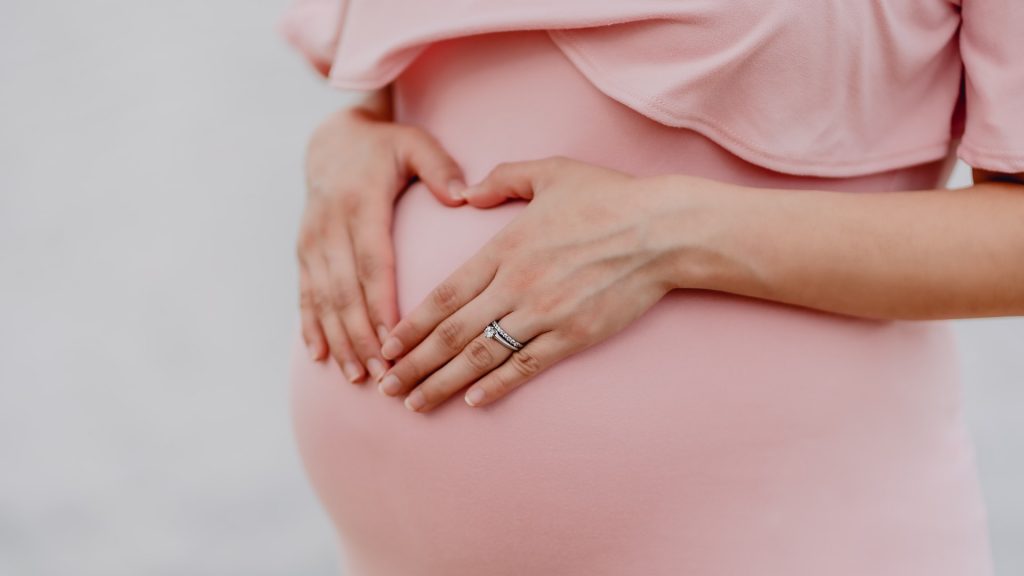Heavy periods? You should check your iron levels

It’s normal for periods to last for 3-7 days, but if you are experiencing heavy periods there may be an underlying health condition causing this. Losing a lot of blood during your period can lead to low iron levels which can negatively impact your health. We want you to better understand what causes this and what can be done about it. What causes this? Women who experience heavy periods, also known as menorrhagia, often bleed more heavily or for longer. This means the body is losing large amounts of blood and tissue filled with iron. Over time, this can lead to the iron store in the body being depleted and causing an iron deficiency or even anemia. There are multiple things that could cause you to have heavy periods including: Read more: How to know if you have PCOS, endometriosis or both? What can I do to improve my iron levels? Introducing more iron into your diet is one of the best ways to increase iron levels in your body. Try eating foods that contain higher amount of iron in them, some examples are: Supplementing with iron tablets is also a convenient and stable way of making sure you’re getting enough iron daily. Combining an iron supplement with vitamin C, either in a supplement form or in your diet, can help with absorption. Read more: 5 reasons you should start taking the right supplements today + Quiz If you are experiencing heavy periods or are just feeling uncertain about your period, speaking with a women’s healthcare professional can help you to find the right diagnosis and treatment for you. To book a virtual consultation with a Zoie Health professional, click here. Sources: Mayo Clinic, American College of Obstetricians and Gynecologists, National Institute of Health, U.S. Department of Health and Human Services
Is this normal? Period FAQs and their answers

Just like women, periods aren’t one-size-fits-all yet there are many period FAQs that we may not want to ask out loud. Even when we do, we may not get the best answers and can feel even more confused than before. When women better understand their periods and what’s going on with their cycle, they can feel empowered by that knowledge and know how they can seek out the help they need when they need it. Speak to a qualified healthcare provider about all you period FAQs so you can get the best treatment for you. Here’s our list of period FAQs and the answers every woman should know about: How do I know if my menstrual cycle is a normal length? A menstrual cycle typically lasts between 21 to 35 days, with an average cycle length of 28 days. One cycle is usually counted as the number of days between the start of your period until the start of your next period. In order to find out how long your period is and to see if your cycle is regular, tracking your menstrual cycle is important. Start by marking the first day of your period on a calendar and the first day of your next period. Then count the number of days between these two dates to determine your cycle length. Do this over several months and see how many days each cycle is and if it’s consistent. Many women are now using period tracking apps in order to keep track of your menstrual cycle and to see when they are becoming irregular. Monitoring your cycle is a great tool for understanding your reproductive health and knowing when something could be wrong. What are normal PMS symptoms and how can I manage them? Premenstrual syndrome (commonly known as PMS) is a group of physical and emotional symptoms that happen in the days leading up to your period. Symptoms of PMS usually include: Eating more nutritious foods, getting regular exercise, and using stress management techniques like meditation can help to alleviate these symptoms. If you are experiencing more severe symptoms, you can talk to your healthcare provider about this period FAQ and what type of medication they would recommend to manage your symptoms. Read more: PMDD: What is it exactly? Why do I experience cramps during my period? Menstrual cramps are caused when the muscles around uterus begin contracting in order to shed its lining, leading to you having a period. The uterus does the same thing during childbirth, to help deliver the baby as well as the placenta. This is a normal symptom that many women experience during their period and while they can be uncomfortable, they should not be extremely painful to the point that you cannot do daily activities. My menstrual cramps are painful, how can I manage them? Dysmenorrhea is a medical name used to describe painful menstrual cramps. If you are having painful cramps during your cycle, taking over-the-counter painkillers, such as ibuprofen or paracetamol, can help to lessen the pain. Other options include applying heat to the lower abdomen where you can feel the cramps as well as getting regular exercise. Both of these options can help to alleviate the pain caused by cramping. Shop now: Zoie Health Period Care products Should I be concerned if my period blood is a different colour than usual? Period blood can range in colour from bright red to dark brown. This usually depends on the age of the blood and how long it’s been in your body for. A brighter shade is usually fresh blood while darker tones indicate that the blood is older. However, if your period blood is an unusual colour and/or has a foul smell, it may be a sign of an infection or another medical condition. If this happens, contact your healthcare provider to find out what treatment you need. Can period blood be a different texture or consistency? Yes, period blood can vary in both texture and consistency. Sometimes it may be thick and clumpy or thin and watery. Just like with a significant change to colour, if you experience significant changes in the texture or consistency of your period blood, speak with your healthcare provider about this period FAQ to find out what may be the cause of these changes and how you can treat any underlying conditions. When should I be concerned about heavy bleeding during my period? Heavy or prolonged bleeding during your period is known as menorrhagia. You may have menorrhagia if you need to change your tampon or pad very frequently or if you are passing blood clots larger than a R2 coin. If you experience heavy bleeding during your period, it may be linked to an underlying medical condition such as fibroids or endometriosis. Heavy menstrual bleeding can also affect the iron levels in your blood and can cause anemia. This is a condition when there is a shortage of red blood cells in the body. Symptoms of anemia include: If you have heavy periods and are experiencing the above symptoms, you may want to speak to your doctor about taking the correct kinds of supplements and medications for your needs. Shop now: Zoie Health Vitamins & Supplements Can I still get pregnant while on my period? While it is less likely to happen then while you are ovulating, it is possible to get pregnant while on your period. This is especially true if you tend to have a shorter menstrual cycle. This is because sperm can stay alive for up to five days inside the uterus and cervix. So if you have sex near the end of your period and then you begin to ovulate shortly after that, you have a higher chance of becoming pregnant. If you do not want to become pregnant, it is important that you and your sex partner use contraceptives correctly no matter where you are in your cycle. Read more: Which contraceptive option is right for you? I’ve missed my
Conceiving With Fibroids: Here’s How To Maximise Your Success

Conceiving with fibroids can be a tricky endeavour but with the right tools, you could have your bundle of joy before you know it.
Chronic Pelvic Pain: 4 Ways To *Really* Manage Your Mental Health

It might not seem obvious, but managing your mental health when you’re dealing with chronic pelvic pain is just as important as the pain itself.
Living With Fibroids: Here’s What It’s Really Like

Living with fibroids can be tricky. The condition can go undiagnosed because they’re often presented as long, painful periods, which can be considered “normal.”

